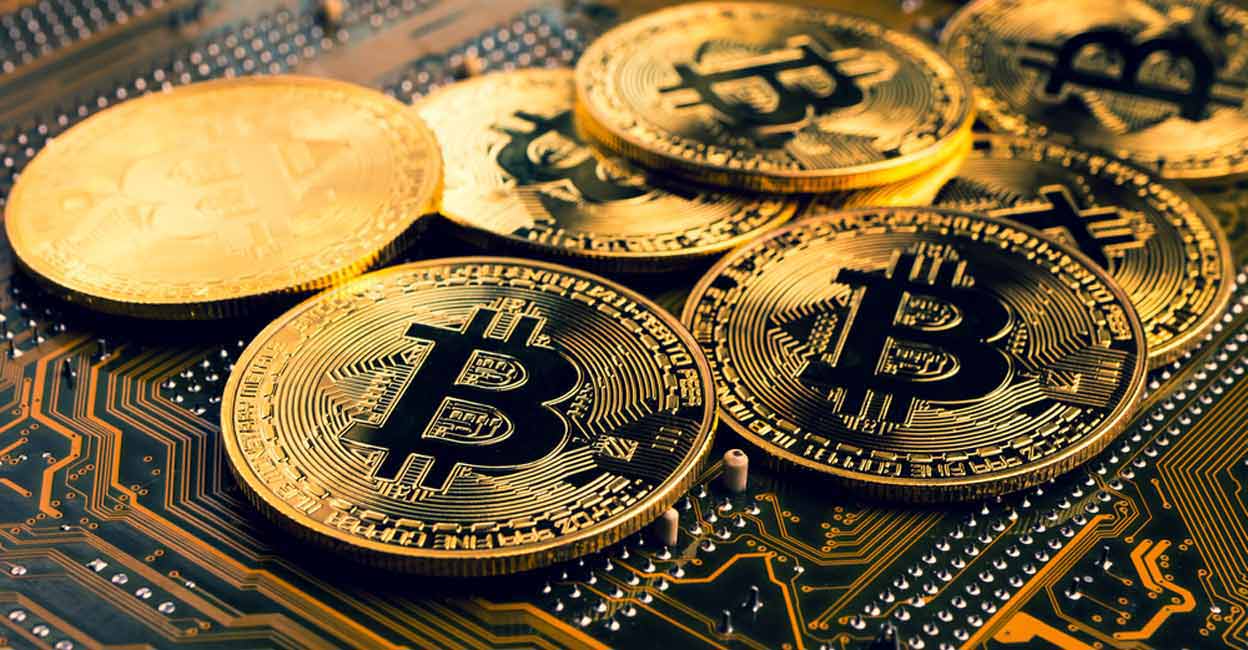All you wanted to know about cryptocurrency: What is it, what is its importance & how is it valued | Explainer Part – 1
The Union Government will bring in a new bill on cryptocurrency in the winter session of the Parliament, scheduled to begin on November 29.
The bill, titled ‘The Cryptocurrency and Regulation of Official Digital Currency Bill, 2021’, aims at creating India’s official digital currency to be issued by the Reserve Bank of India. It also seeks to prohibit all private cryptocurrencies in the country, but promises to provide certain exceptions to ‘promote the underlying technology of cryptocurrency and its uses’.
Cryptocurrency has been hogging media headlines for some wrong reasons too.
Earlier this month, the Kerala Police had arrested four persons in connection with a cryptocurrency fraud to the tune of Rs 100 crore in Kannur. They apparently collected the money from investors promising huge returns via cryptocurrency trade.

Cryptocurrency is a new asset class. It is also a speculative investment. But experts believe that technology behind cryptocurrency has a great future ahead. In this context, cryptocurrency expert Sunil Raveendran, who works with a Technopark MNC in Thiruvananthapuram, explains what cryptocurrency is, how its value is decided, what is its importance and what is Bitcoin.
What is cryptocurrency?
Cryptocurrency is a ‘native digital asset class’, independent of government control whose value is derived within the network. It doesn’t have a single owner. It is being governed by a network of encrypted databases called Blockchain and secured through cryptographic techniques (the science of encoding and decoding information) — hence the name cryptocurrency. Bitcoin is the first and most popular cryptocurrency.
What is the importance of cryptocurrency?
To understand it better, let’s explain the traits of fiat currency first. As you know, each country has its own currency, which is issued by the central bank of that country. The value of fiat currency comes from the backing of the government and the trust that people have over the government. It can be either paper-based or coin-based. The commercial banks, such as SBI, ICICI etc, facilitate currency transactions. Rather, banks play the role of a trusted middleman.
In the last decade, physical currency has almost given way to digital mode of payment. However, this digital cash is not truly digital or ‘native digital’. It is just the digitally converted form of the physical cash and facilitated direct mode of payment between two parties via the Internet. Due to its ease of use, digital mode of payment became very popular. The digital mode of payments are also fully controlled by the government.
In the aftermath of the 2008 financial crisis there was an interest to build a digital asset class that’s independent of the government and government-owned banks. (An asset class is a group of securities that share similar characteristics, perform comparably in the marketplace, and are governed by the same laws and regulations. Major asset classes include currency, gold, oil and stocks.) The wait ended in 2008 when an anonymous entity, Satoshi Nakamoto, published a paper on the possibility of building a currency without government support. The whereabouts of the author still remain unknown.
What is Bitcoin?
After Nakamoto’s paper was published, the first ‘native digital currency’ or cryptocurrency, Bitcoin, came into existence.
Bitcoin is born digital (native digital) without government control. It doesn’t have a single owner. Instead, it is being governed by a network of private encrypted databases called Blockchain (a distributed ledger of all transactions that is decentralised and unable to be changed once written). Its value is derived within the network. The maximum number of bitcoins that can ever exist is 21 million

Is Bitcoin the only cryptocurrency in the market?
No, there are plenty of cryptocurrencies available in the market. Ethereum and Ether are some of them. But Bitcoin holds the record for being the first cryptocurrency. Each cryptocurrency has different use cases. Let’s borrow an analogy from the vehicle market to explain it better. Different cars are available in the market, such as sedan, hatchback, SUV etc. Each segment is designed for specific purposes. Likewise, cryptocurrencies also serve different purposes.
How is the value of a cryptocurrency decided?
Its value is assigned through speculation and scale of community involvement.
The easiest way of investing in cryptocurrency is by trading (buying and selling) of any particular cryptocurrency, such as Bitcoin, Ethereum, Ether etc. These are done through online cryptocurrency exchanges where investors open an account and start trading.
On November 25, one Bitcoin was valued approximately Rs 44 lakh.
Note: The second part will delve into details, such as what is a cryptocurrency exchange, how strong is the crypto asset class, why there is an increased interest in cryptocurrency around the globe, what is the status of crypto transactions in India, why crypto frauds are rampant and what is the future of cryptocurrency.
(Disclaimer: Views expressed by Sunil Raveendran are personal.)
For all the latest business News Click Here

